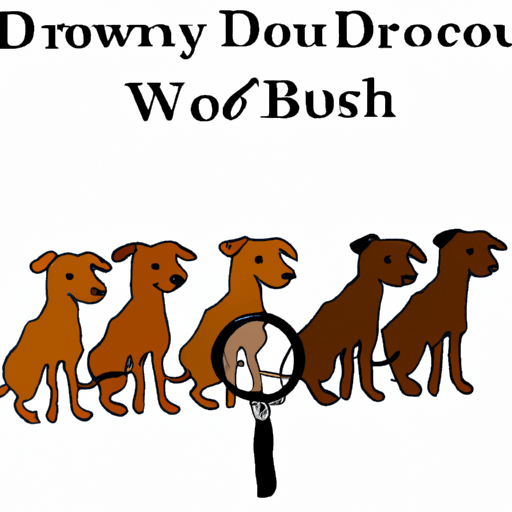Most of us can picture our ideal dog. Maybe it’s a fluffy Golden Retriever, a playful Black Labrador, or a cuddly Dachshund with its short legs and long body. But when it comes to canine color, things might not be as black and white, or should we say, brown and not brown, as they seem. The statement “Some dogs are not brown” is a simple negative existential statement. It might seem straightforward, but it opens the door to a fascinating world of canine color genetics.
- Understanding Negative Existential Statements
- Canine Color Genetics
- Why Aren’t All Dogs Brown?
- Factors Affecting Dog Coat Color
- FAQs
Understanding Negative Existential Statements
A negative existential statement asserts the non-existence of something. In our case, that some dogs are not brown. This sentence negates the existence of a universal set where every dog is brown, allowing the existence of dogs of other colors. If you want to dive deeper into the logic behind such statements, you can check out this informative piece on existential statements.
Canine Color Genetics
Dog color genetics are a complex affair. They’re determined by the interaction of several genes, each responsible for a different aspect of the dog’s coat color. There are genes responsible for eumelanin (black/brown pigment), and others for phaeomelanin (red/yellow pigment). Top Dog Tips offers a great guide on various dog breeds and their typical coat colors.
The color of a dog’s coat is influenced by two pigments: eumelanin (black) and phaeomelanin (red or yellow). These two pigments are controlled by multiple genes that work together to determine a dog’s final coat color. Some genes dictate the color, while others modify it. For instance, a dog with a dominant eumelanin gene will have a black or brown coat, but other genes can dilute this color to gray or blue.
Why Aren’t All Dogs Brown?
The simple answer is genetics. The genes a dog inherits from its parents determine its coat color. If both parents carry the gene for a brown coat, there’s a high chance the puppies will be brown. However, if one parent carries a gene for a different color, the puppies might inherit that color instead. Besides, genes can mutate, leading to new colors that didn’t exist in previous generations. This is how we’ve ended up with such a diverse range of colors in dogs.
To illustrate, let’s look at the Golden Retriever. It’s a breed known for its luscious golden coats. According to the American Kennel Club, the breed standard color ranges from a light to a dark golden. But you won’t find a brown Golden Retriever. That’s because they don’t carry the specific gene variant that would make their coats brown.
Factors Affecting Dog Coat Color
-
Genes: As we’ve discussed, the primary factor determining a dog’s color is its genes.
-
Breed: Some breeds have breed standards that define the acceptable colors. For instance, the Dalmatian is expected to be white with black or liver spots.
-
Age: Some dogs change color as they age. Puppies might be born one color and change as they grow.
-
Health: Certain health conditions can cause a dog’s coat to change color.
-
Environment: Extreme weather conditions can sometimes affect a dog’s coat color.
To further understand how these factors influence dog color, you can visit One Top Dog for more information on dog care and One Top Dog for training tips that can enhance your dog’s well-being and appearance.
FAQs
Q: Why is my dog’s coat changing color?
A: Age, health conditions, and environmental factors can cause your dog’s coat to change color.
Q: Can a brown dog give birth to puppies of a different color?
A: Yes, if the other parent carries the gene for a different color or if there is a gene mutation.
Q: Are there dogs that are always brown?
A: No, even in breeds where brown is common, not all dogs will be brown due to genetic diversity.
In conclusion, the statement “Some dogs are not brown” is a simple fact that introduces us to the fascinating world of canine color genetics. It’s a testament to the incredible diversity and complexity of our four-legged friends. So, whether your dog is brown, black, white, or any other color, they are a unique combination of genes that make them the perfect companion for you.



